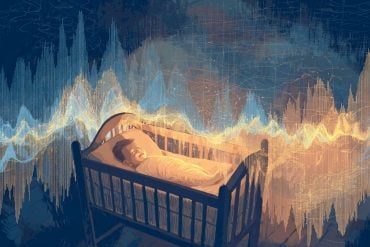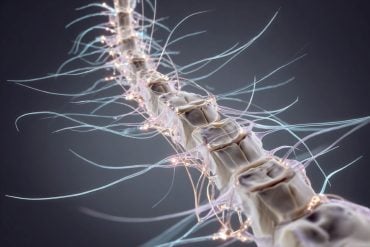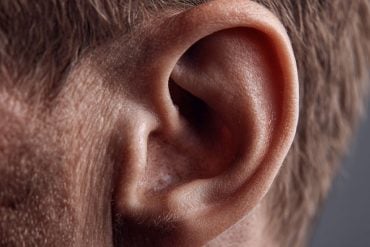Summary: Researchers report menopausal women who experience intimate partner violence and emotional abuse have increased risk of developing heightened symptoms of menopause.
Source: UCSF.
Smoking, obesity and a sedentary lifestyle have long been linked to heightened symptoms of menopause. Now, a study headed by UC San Francisco has identified another factor that may add to menopause torment: an emotionally abusive partner or spouse.
In the study of more than 2,000 midlife and older women, researchers found that one in five women had been emotionally abused by their current or former partners, and that these women had 50 percent higher odds of night sweats and 60 percent higher odds of painful sex.
Among women with symptoms of post-traumatic stress disorder (PTSD) or those who were victims of sexual assault or domestic violence, the prevalence of menopausal pain and discomfort was also significantly higher, the authors said in their study, which publishes in JAMA Internal Medicine on Nov. 19, 2018.
Women with PTSD symptoms had just over three times the odds of sleep difficulties and more than twice the odds of reporting vaginal irritation and painful intercourse. Women who were victims of sexual assault or violence by former or present partners had 40-to-44 percent higher odds of painful sex.
“Traditionally, menopause symptoms have been largely attributed to biological and hormonal changes, as well as negative mood symptoms, health-risk behaviors, cardio-metabolic risk factors and chronic health conditions that occur at a higher rate during and after menopause,” said first author Carolyn Gibson, PhD, a clinical research psychologist affiliated with the UCSF Department of Psychiatry.
“Stress related to emotional abuse and other traumatic exposures may influence the hormonal and physiological changes of menopause and aging, affecting biological susceptibility as well as the subjective experience of these symptoms,” she said.
Gibson and her team looked at three types of menopause symptoms among the 2,016 participants: difficulties with sleep; vaginal discomfort such as dryness, irritation and painful sex; and vasomotor symptoms, which includes night sweats and hot flashes.
Abuse, Sexual Assault, PTSD Symptoms ‘Surprisingly Common’
Participants were enrolled in Kaiser Permanente Northern California, an integrated health care system serving approximately 30 percent of the region’s population. Their average age was 61; most were postmenopausal (77 percent), college-educated (81 percent), and overweight or obese (74 percent). Approximately 39 percent of participants were white, while 20 percent were Hispanic, 21 percent black and 19 percent Asian.
Traumatic exposures, especially emotional abuse and PTSD symptoms, were “surprisingly common” in this sample of women, according to Gibson, who described participants as “relatively healthy, well-educated and with better than average access to health care.” Some 21 percent of women (423) said that they had been emotionally abused by their former or current partner. This was defined as “made fun of, severely criticized, told you were a stupid or worthless person, or threatened with harm to yourself, your possessions or your pets.”

Some 23 percent (450) reported symptoms that matched a diagnosis of PTSD, 16 percent (316) said they were or had been victims of domestic violence and 19 percent (382) had experienced sexual assault.
“The data show that experience of domestic violence and emotional abuse, sexual assault and clinically significant PTSD symptoms are common, and may affect women’s health across the lifespan,” said Gibson, who is based at the San Francisco VA Health Care System. “Our findings suggest that routine assessment and recognition of PTSD symptoms and lifetime traumatic exposures when women are seen by health care providers may enhance the effective management of menopausal symptoms.”
Study co-author Brigid McCaw, MD, medical director of the Kaiser Permanente Family Violence Prevention Program, agrees: “These findings support the recent U.S. Preventive Services Task Force recommendation to screen for emotional or physical abuse given the significant and long-lasting health impact.”
Funding: The study was supported by the UCSF-Kaiser Permanente Grants Program for Delivery Science; Office of Research on Women’s Health Specialized Center of Research, and the National Institute of Diabetes and Digestive and Kidney Diseases. Research was also supported by the VA Advanced Fellowship Program in Women’s Health and VA Health Services Research & Delivery CDA 17-018 (CJG).
Disclosures: Huang has received research grants from Pfizer Inc. and Astellas through UCSF to conduct research unrelated to this manuscript. The content is solely the responsibility of the authors and does not necessarily represent the official views of the Department of Veterans Affairs.
Source: Suzanne Leigh – UCSF
Publisher: Organized by NeuroscienceNews.com.
Image Source: NeuroscienceNews.com image is in the public domain.
Original Research: Open access research for “Associations of Intimate Partner Violence, Sexual Assault, and Posttraumatic Stress Disorder With Menopause Symptoms Among Midlife and Older Women” by Carolyn J. Gibson, PhD, MPH3; Alison J. Huang, MD, MAS; Brigid McCaw, MD, MPH, MS; Leslee L. Subak, MD; David H. Thom, MD, PhD, MPH; and Stephen K. Van Den Eeden, PhD in JAMA Internal Medicine. Published November 15 2018.
doi:10.1001/jamainternmed.2018.5233
[cbtabs][cbtab title=”MLA”]UCSF”Emotional Abuse Linked to Menopause Misery.” NeuroscienceNews. NeuroscienceNews, 19 November 2018.
<https://neurosciencenews.com/emotional-abuse-menopause-10226/>.[/cbtab][cbtab title=”APA”]UCSF(2018, November 19). Emotional Abuse Linked to Menopause Misery. NeuroscienceNews. Retrieved November 19, 2018 from https://neurosciencenews.com/emotional-abuse-menopause-10226/[/cbtab][cbtab title=”Chicago”]UCSF”Emotional Abuse Linked to Menopause Misery.” https://neurosciencenews.com/emotional-abuse-menopause-10226/ (accessed November 19, 2018).[/cbtab][/cbtabs]
Abstract
Associations of Intimate Partner Violence, Sexual Assault, and Posttraumatic Stress Disorder With Menopause Symptoms Among Midlife and Older Women
Importance
Little is known about the prevalence of traumatic exposures among midlife and older women and the association of these traumatic exposures with health issues.
Objective
To examine the associations of intimate partner violence (IPV), sexual assault, and posttraumatic stress with menopause symptoms among midlife and older women.
Design, Setting, and Participants
A cross-sectional analysis of data from a multiethnic cohort of 2016 women 40 to 80 years of age in the Kaiser Permanente Northern California health care system was conducted from November 15, 2008, to March 30, 2012. Statistical analysis was conducted from June 8, 2016, to September 6, 2017.
Exposures
Lifetime physical or emotional IPV, sexual assault, and current symptoms of posttraumatic stress disorder, assessed with standardized questionnaires.
Main Outcomes and Measures
Difficulty sleeping, vasomotor symptoms, and vaginal symptoms, assessed with standardized questionnaires.
Results
Among the 2016 women enrolled, the mean (SD) age was 60.5 (9.5) years, and 792 of 2011 with race/ethnicity data (39.4)% were non-Latina white (403 [20.0%] Latina, 429 [21.3%] black, and 387 [19.2%] Asian). Lifetime emotional IPV was reported by 423 women (21.0%), lifetime physical IPV was reported by 316 women (15.7%), sexual assault was reported by 382 women (18.9%), and 450 of 2000 women (22.5%) had current clinically significant symptoms of posttraumatic stress disorder. In multivariable analyses adjusted for age, race/ethnicity, educational level, body mass index, menopause status, hormone therapy, and parity, symptoms of posttraumatic stress disorder were associated with difficulty sleeping (odds ratio [OR], 3.02; 95% CI, 2.22-4.09), vasomotor symptoms (hot flashes: OR, 1.69; 95% CI, 1.34-2.12; night sweats: OR, 1.72; 95% CI, 1.37-2.15), and vaginal symptoms (vaginal dryness: OR, 1.73; 95% CI, 1.37-2.18; vaginal irritation: OR, 2.20; 95% CI, 1.66-2.93; pain with intercourse: OR, 2.16; 95% CI, 1.57-2.98). Emotional IPV was associated with difficulty sleeping (OR, 1.36; 95% CI, 1.09-1.71), night sweats (OR, 1.50; 95% CI, 1.19-1.89), and pain with intercourse (OR, 1.60; 95% CI, 1.14-2.25). Physical IPV was associated with night sweats (OR, 1.33; 95% CI, 1.03-1.72). Sexual assault was associated with vaginal symptoms (vaginal dryness: OR, 1.41; 95% CI, 1.10-1.82; vaginal irritation: OR, 1.42; 95% CI, 1.04-1.95; pain with intercourse: OR 1.44; 95% CI, 1.00-2.06).
Conclusions and Relevance
Lifetime history of IPV or sexual assault and current clinically significant symptoms of posttraumatic stress disorder are common and are associated with menopause symptoms. These findings highlight the need for greater recognition of these exposures by clinicians caring for midlife and older women.






